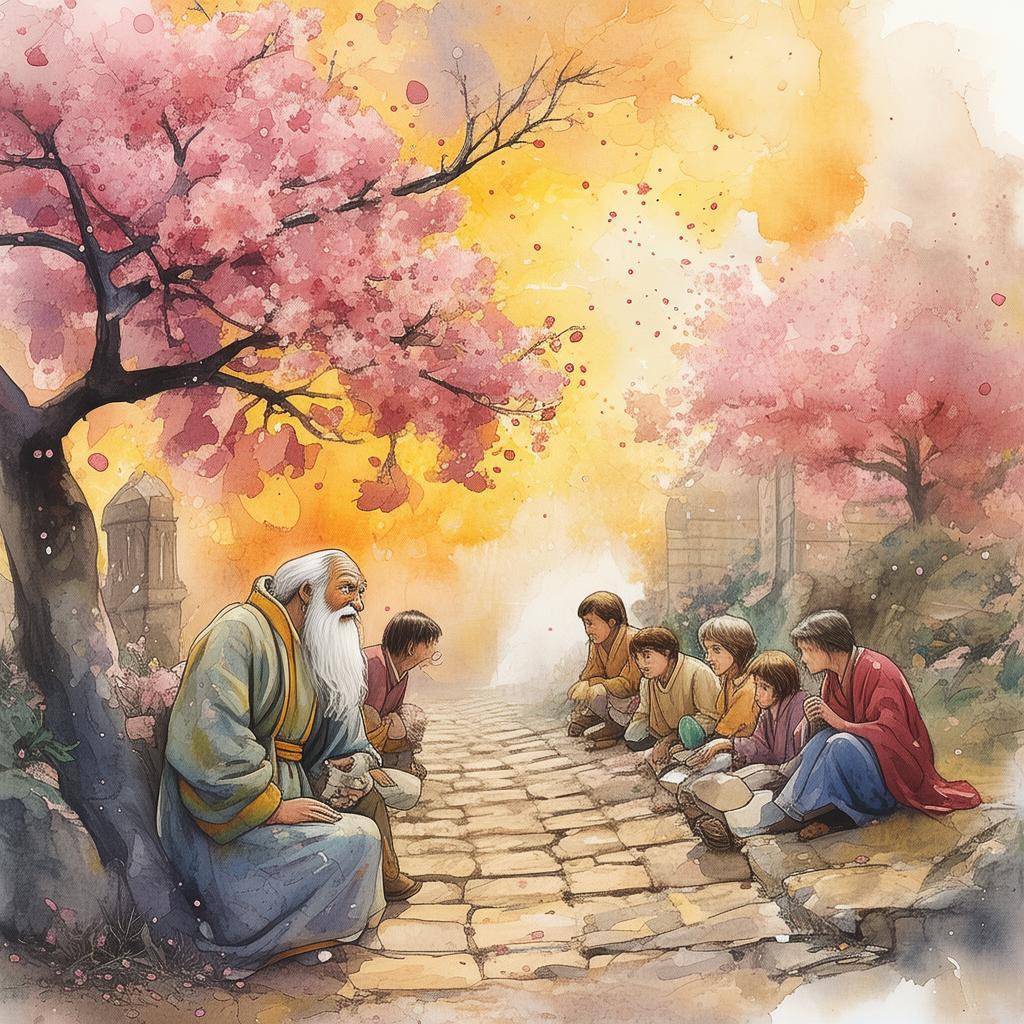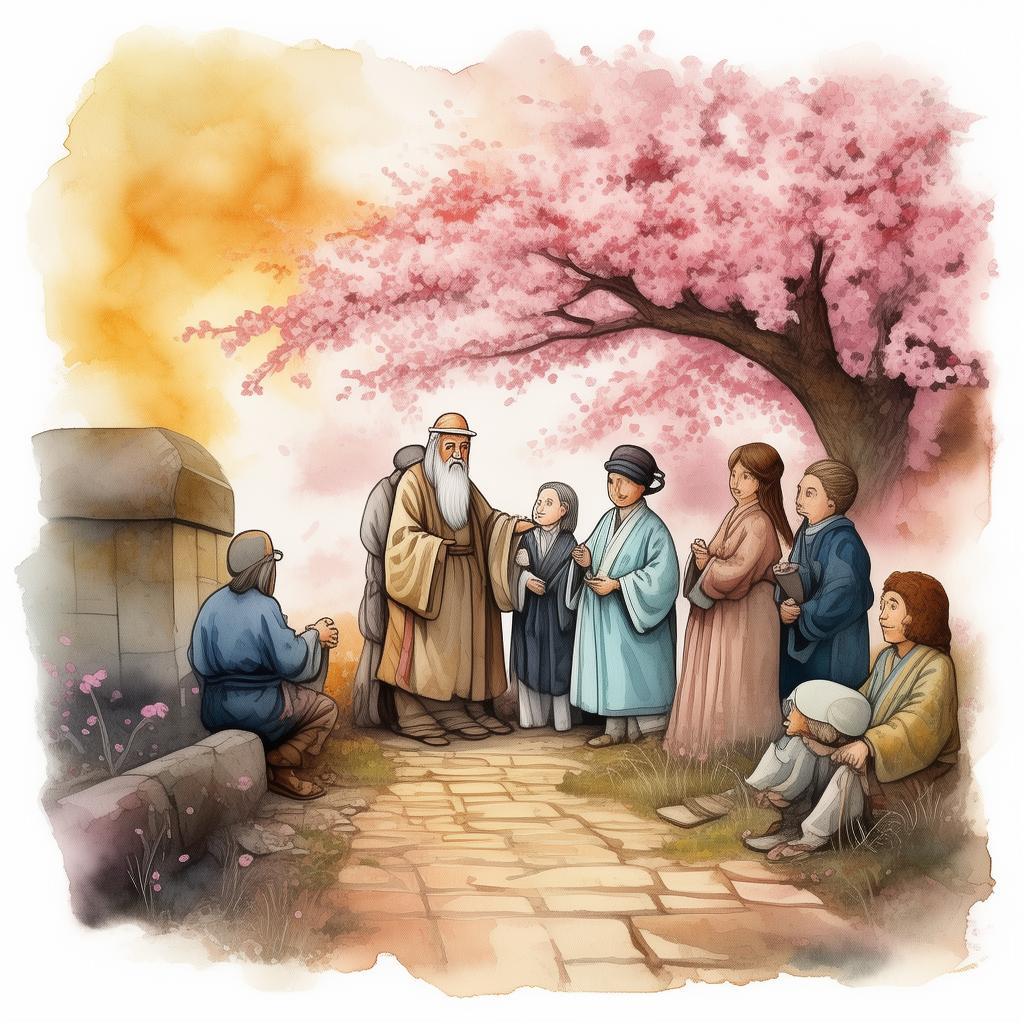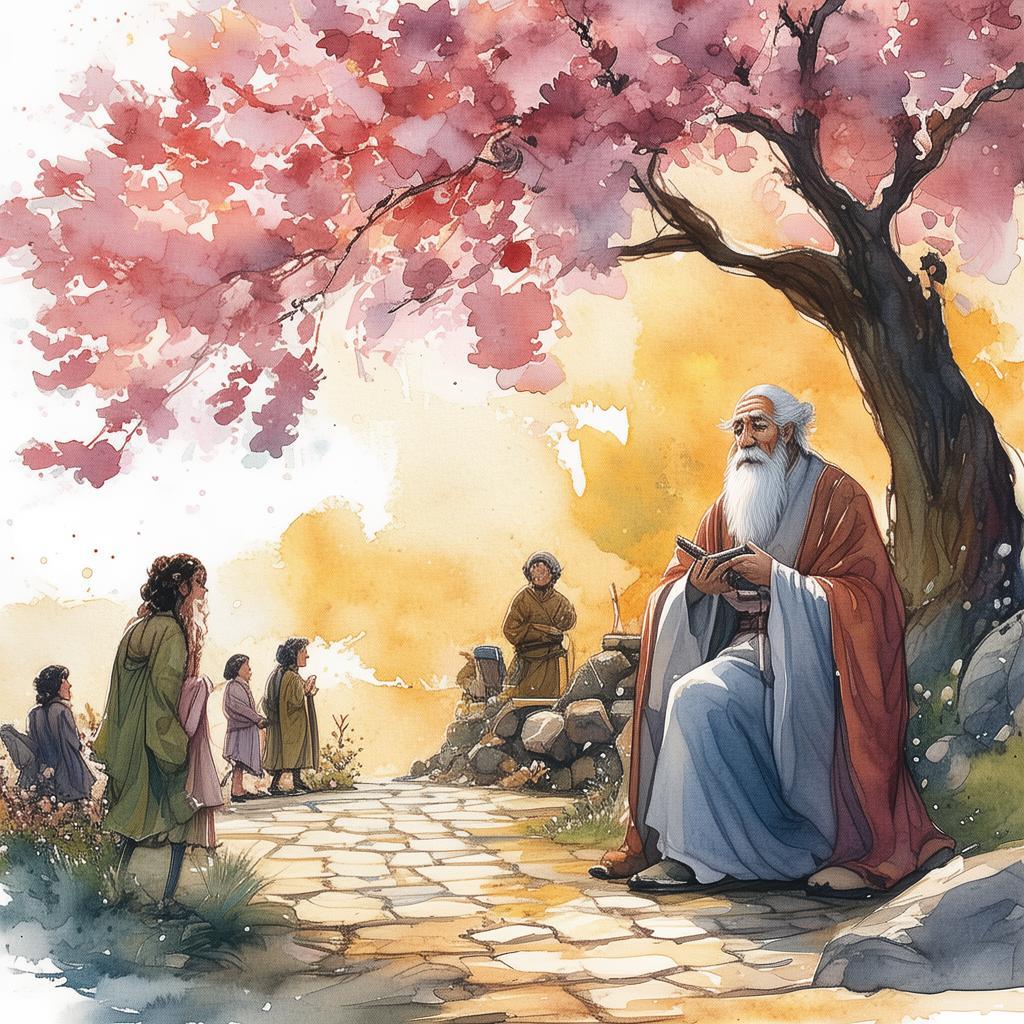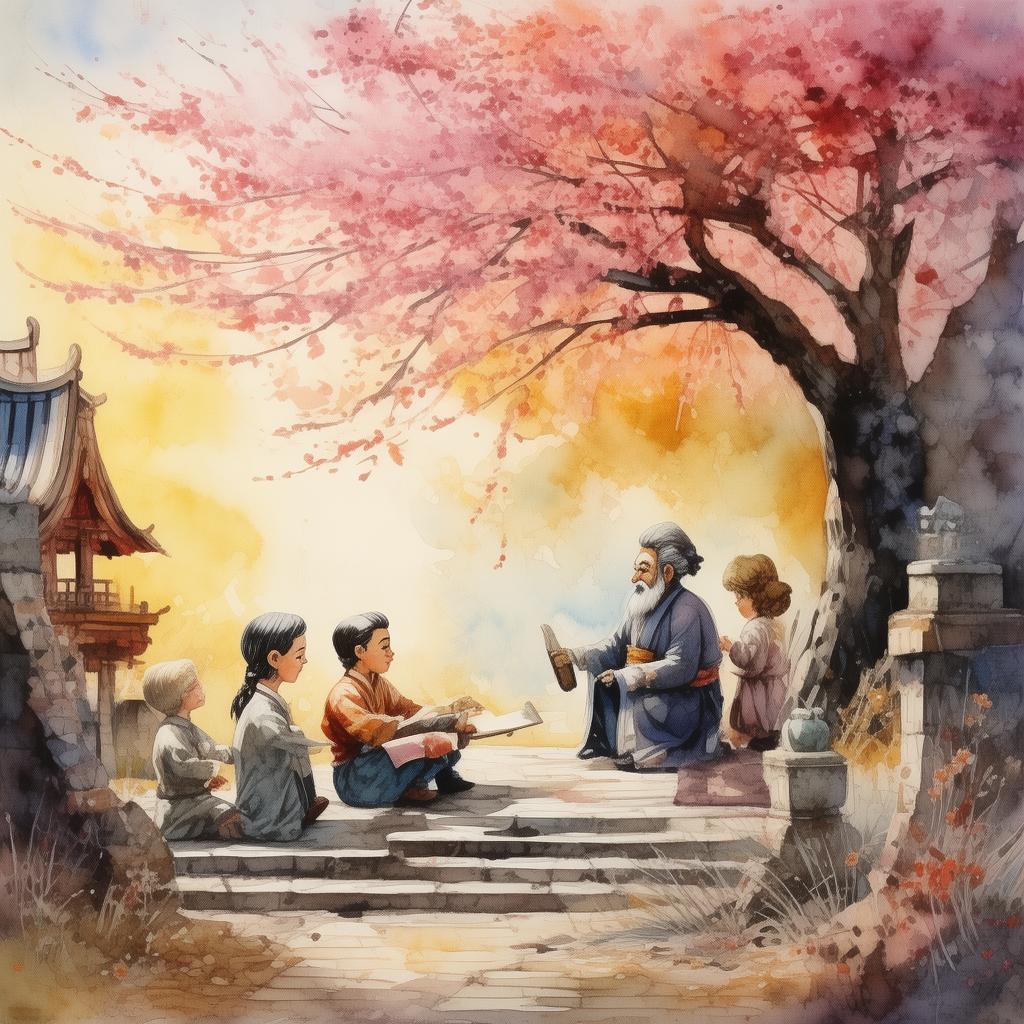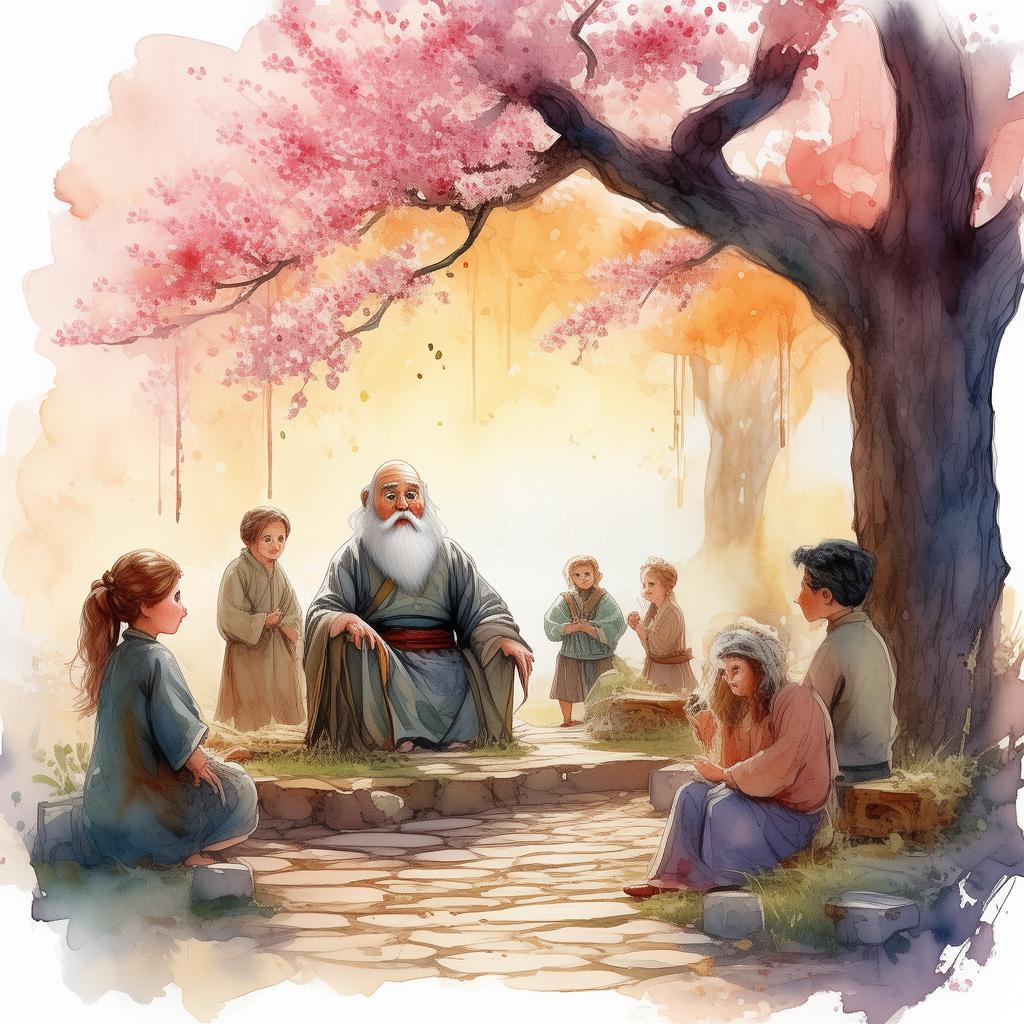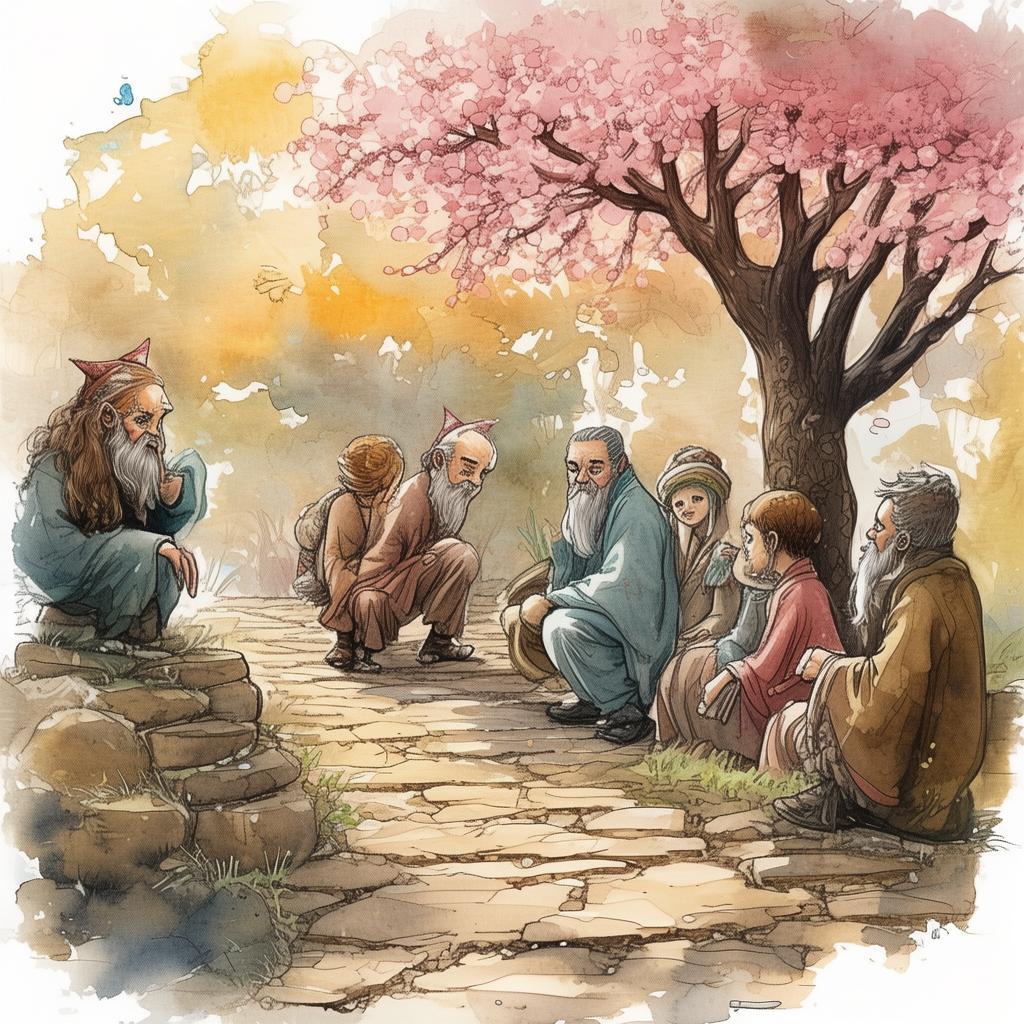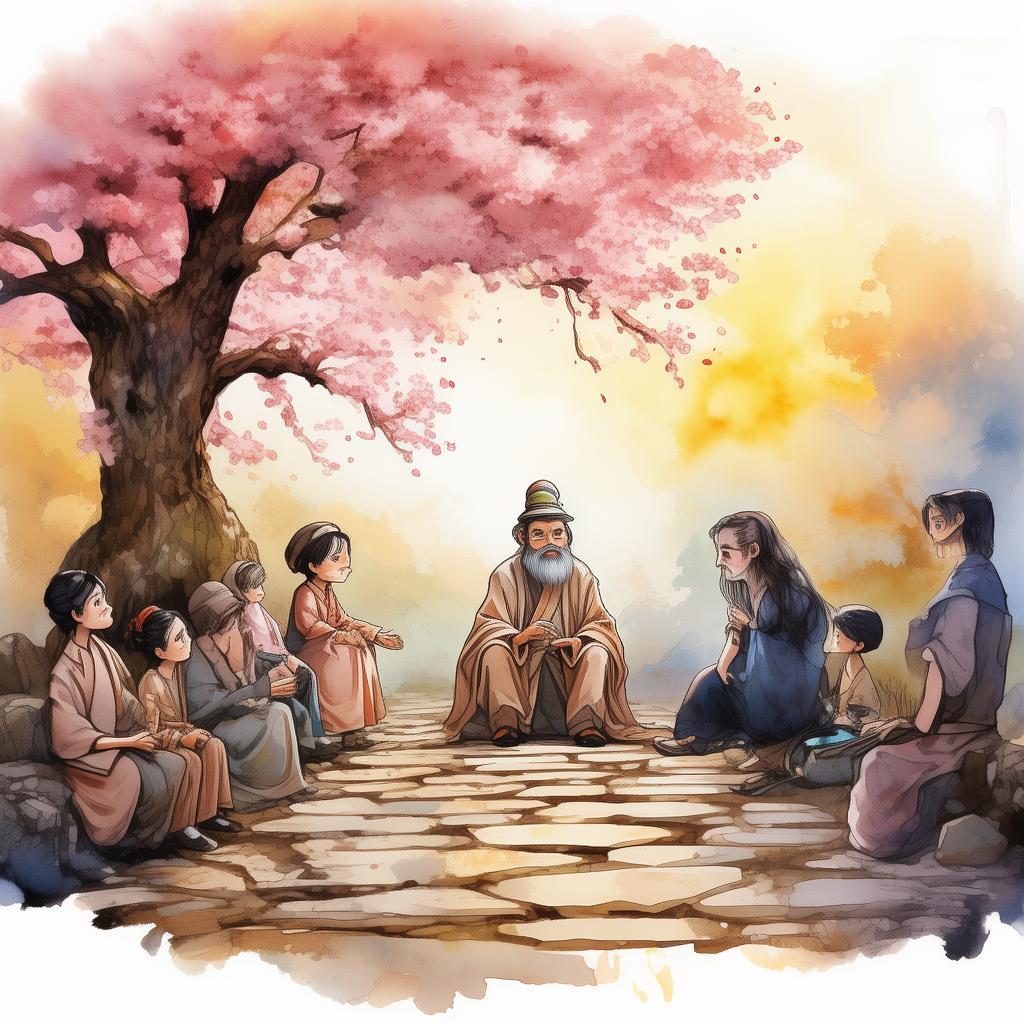The Pen That Wrote Its Own Demise: The Tale of the Useless Poet
In the ancient city of Ling, where the air was thick with the scent of ink and the hum of scholarly debate, there lived a poet named Quan. His name was whispered in reverence, for he was said to possess the gift of the gods—a talent for crafting verses that could move mountains and hearts alike.
Quan's study was a sanctuary of ancient scrolls and precious artifacts, but it was the pen that rested upon his desk that truly held the key to his legend. This pen was not just any pen—it was a magical artifact, imbued with the essence of the gods themselves. With each stroke, the pen would weave a tapestry of beauty and emotion, words that seemed to dance upon the page, leaving a trail of wonder and inspiration in their wake.
The city's scholars and literati would gather at the edge of Quan's study, eager to hear the latest of his verses. They would listen, captivated, as he recited tales of love, loss, and the timeless beauty of the world. Each word that left his lips was a gem, polished by the fire of his genius.
However, as the years passed, a strange thing began to occur. The verses Quan composed grew increasingly hollow, devoid of meaning and purpose. The once-glowing words now flickered like embers in the wind, leaving the listeners confused and unimpressed.
The scholars grew suspicious, whispering among themselves that the pen had been cursed. They spoke of old legends, of a time when poets were revered as gods, and of the consequences that befell those who dared to misuse their gift. They said that Quan's pen had been touched by such a curse, and that it was now compelled to write only verses of meaninglessness.
Quan, once the beacon of inspiration, now found himself the subject of mocking and scorn. His verses were laughed at, his genius dismissed. The pen that once sang like a lark now scribbled like a raven, and the words it produced were as empty as the hollows of the listeners' hearts.
One day, in a fit of frustration and despair, Quan decided to confront the curse. He sought out the oldest and wisest of the sages, hoping they might hold the key to breaking the curse that had befallen his pen.
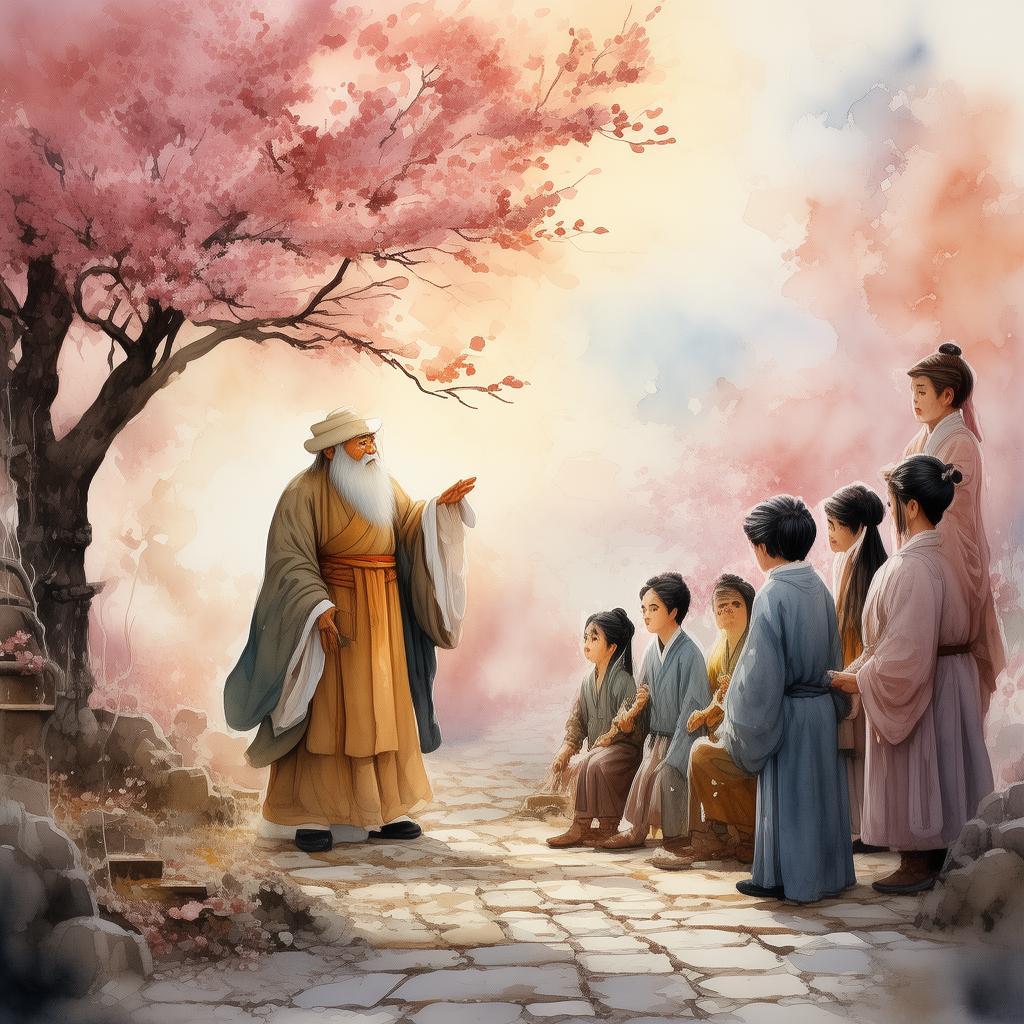
The sage listened intently as Quan recounted his tale, his eyes reflecting the weight of the poet's sorrow. "The curse," the sage began, "is not upon the pen, but upon the poet himself. It is a reminder that true poetry is not just the art of the words, but the art of the heart."
Quan, taken aback by the sage's words, pondered the meaning. He realized that his verses had become hollow because he had lost touch with the essence of his own emotions. The curse was a reflection of his own emptiness, a mirror held up to his soul.
With newfound determination, Quan set out to rediscover the depths of his own heart. He traveled to the farthest reaches of the land, seeking inspiration in the beauty of nature and the stories of the people he met along the way. He listened to the songs of the birds, the whispers of the wind, and the tales of the common folk.
As he journeyed, Quan began to write again. But this time, his verses were different. They were filled with the raw emotions he had suppressed for so long—the joy of laughter, the pain of loss, the wonder of discovery. His pen, once cursed, now danced with life, as if it too had been freed from the weight of meaninglessness.
The city of Ling once again buzzed with the news of Quan's return. His verses were once more a source of inspiration, touching the hearts of all who heard them. But this time, the inspiration was different. It was a reminder that true poetry is not just about the words, but about the soul that breathes life into those words.
Quan's pen, once a symbol of his downfall, had become a symbol of his redemption. And in the end, it was not the pen that wrote Quan's demise, but the pen that wrote his rebirth.
✨ Original Statement ✨
All articles published on this website (including but not limited to text, images, videos, and other content) are original or authorized for reposting and are protected by relevant laws. Without the explicit written permission of this website, no individual or organization may copy, modify, repost, or use the content for commercial purposes.
If you need to quote or cooperate, please contact this site for authorization. We reserve the right to pursue legal responsibility for any unauthorized use.
Hereby declared.
